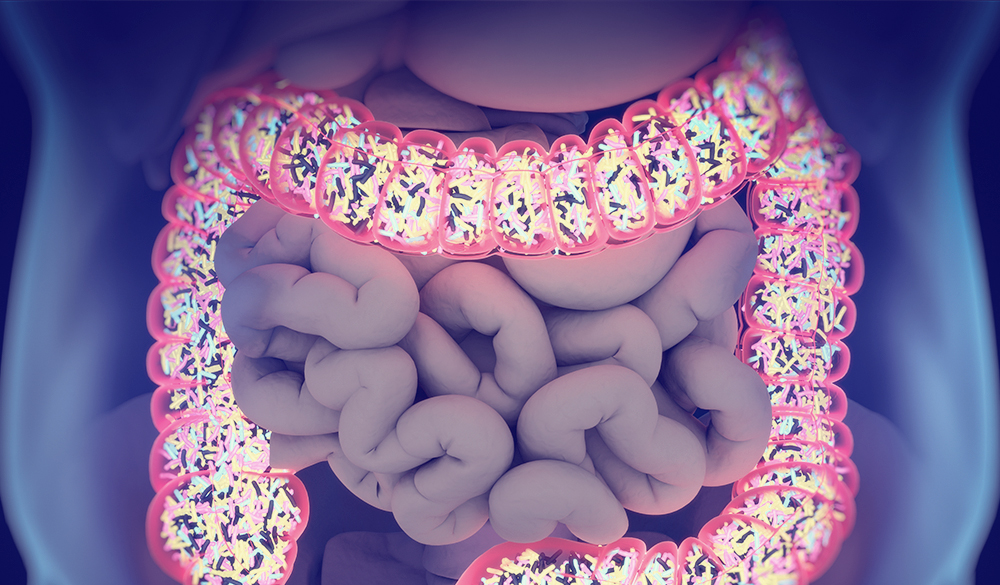Mention quercetin and the first thing that will spring to mind for practitioners will most likely be its efficacy in the treatment of allergies. Often referred to as ‘nature’s antihistamine’, quercetin reduces the allergic response by stabilising mast cells and basophils thus preventing the release of histamine. But emerging evidence is revealing quercetin to be much more than an allergy therapy – with potential applications as diverse as gastroprotection, neuroprotection and inhibition of quorum sensing. While many of these areas of research are still in their infancy, they highlight the widespread potential of quercetin that may be applied in the future. For complementary health practitioners, the potential benefit of quercetin for improving gastrointestinal health makes it a promising nutraceutical for a range of commonly encountered gastrointestinal conditions.
Gastrointestinal effects of quercetin
In addition to quercetin’s well-known anti-allergic activity, emerging research has revealed it possesses an array of other biological actions including anticarcinogenic, anti-inflammatory, antiviral, antioxidant, anti-atherosclerotic, antiproliferative and antiplatelet activity.[1,2]
Perhaps the most promising, and certainly of high interest to complementary health practitioners, is its positive effect on the gastrointestinal (GIT) system where it may reduce inflammation, improve gut microbiota, enhance intestinal barrier function and provide an overall protective effect.
NSAID-induced gastroenteropathy
Non-steroidal anti-inflammatory drugs (NSAIDs) are among the mostly widely prescribed drugs in the world, and with their use comes an increased risk of GIT mucosal injury.[3,4]
Indeed, NSAID-induced gastroenteropathy or GIT toxicity has emerged as a significant medical and socioeconomic problem.[5,6] The coprescription of proton pump inhibitors (PPI) or H2-receptor antagonists with NSAIDs is often recommended to reduce the damaging effects of NSAIDs in the stomach and duodenum. However, this combination has been shown to result in significant exacerbation of enteropathic (intestinal) damage.[5-7]
Two recent animal studies have combined either a PPI or H2-antagonist with quercetin to examine whether the combination protected the GIT mucosa against gastroenteropathic damage due to NSAID use.[5,6] Both studies found that the co-administration of quercetin with the PPI or H2-antagonist significantly reduced enteropathic damage, most likely due to quercetin preventing GIT blood loss, reducing GIT tissue oxidative stress, positively altering intestinal permeability and altering GIT luminal pH. These two studies highlight quercetin’s promising gastroenteroprotective ability.
H. pylori-induced inflammation
Helicobacter pylori infection is one of the most common bacterial infections in humans and can result in chronic gastritis, peptic ulcer disease and increased risk of gastric cancer and gastric mucosa-associated lymphoid tissue (MALT) lymphoma.[8] In vitro and in vivo studies have shown that administration of quercetin results in a reduction of H. pylori counts, while also reducing inflammatory markers and providing protection against gastric inflammation and apoptosis which are associated with H. pylori infection.[8-10]
Intestinal microbiota imbalance
Following on from suggestions that quercetin may have the capacity to positively modulate the intestinal microbiota composition, several research teams have tested this hypothesis. In a rat model of gut dysbiosis induced by a high-fat sucrose (HFS) diet, quercetin was shown to prevent body weight gain, reduce serum insulin levels and insulin resistance, and reduce HFS-diet-induced gut microbiota dysbiosis.[11] Similarly, mice fed a diet which included quercetin-enhanced apples experienced a decrease in inflammatory markers and positive changes in gut microbiota compared to controls.[12]
A mouse model of non-alcoholic fatty liver disease (NAFLD) showed that supplementation with quercetin decreased insulin resistance, NAFLD scores and reverted gut microbiota imbalance.[13]
Intestinal barrier dysfunction
Maintaining the integrity of the intestinal barrier and intestinal permeability is critical for health and disease prevention, and may be influenced both positively and negatively by dietary factors. A study using human intestinal cells found that quercetin enhanced intestinal barrier function through the assembly of proteins integral to tight junction structure and function.[14] In an animal study, quercetin was shown to increase jejunum villi height, increase expression of tight junction proteins and reduce inflammation.[15]
The current research provides a promising role for quercetin in improving and maintaining gastrointestinal health. Future human trials will hopefully expand on the current research and provide integrative practitioners with a new application for quercetin covering a wide range of gastrointestinal conditions.
References
-
Serban MC, Sahebkar A, Zanchetti A, et al. Effects of quercetin on blood pressure: a systematic review and meta-analysis of randomized controlled trials. J Am Heart Assoc 2016;5(7). pii: e002713.[Abstract]
-
Li Y, Yao J, Han C, et al. Quercetin, inflammation and immunity. Nutrients 2016;8(3):167.[Full Text]
-
Coxib and traditional NSAID Trialists' (CNT) Collaboration, Bhala N, Emberson J, et al. Vascular and upper gastrointestinal effects of non-steroidal anti-inflammatory drugs: meta-analyses of individual participant data from randomised trials. Lancet 2013;382(9894):769-779.[Abstract]
-
Drini M. Peptic ulcer disease and non-steroidal anti-inflammatory drugs. Aust Prescr 2017;40:91-93.[Full Text]
-
Singh DP, Borse SP, Nivsarkar M. Co-administration of quercetin with pantoprazole sodium prevents NSAID-induced severe gastroenteropathic damage efficiently: evidence from a preclinical study in rats. Exp Toxicol Pathol 2017;69(1):17-26.[Abstract]
-
Singh DP, Borse SP, Nivsarkar M. Overcoming the exacerbating effects of ranitidine on NSAID-induced small intestinal toxicity with quercetin: providing a complete GI solution. Chem Biol Interact 2017;272:53-64.[Abstract]
-
Blackler RW, Gemici B, Manko A, et al. NSAID-gastroenteropathy: new aspects of pathogenesis and prevention. Curr Opin Pharmacol 2014;19:11-6.[Abstract]
-
Brown JC, Wang J, Kasman L, et al. Activities of muscadine grape skin and quercetin against Helicobacter pylori infection in mice. J Appl Microbiol 2011;110(1):139-146.[Abstract]
-
Zhang S, Huang J, Xie X, et al. Quercetin from Polygonum capitatum protects against gastric inflammation and apoptosis associated with Helicobacter pylori infection by affecting the levels of p38MAPK, BCL-2 and BAX. Molecules 2017;22(5). pii: E744.[Abstract]
-
González-Segovia R, Quintanar JL, Salinas E, et al. Effect of the flavonoid quercetin on inflammation and lipid peroxidation induced by Helicobacter pylori in gastric mucosa of guinea pig. J Gastroenterol 2008;43(6):441-447.[Abstract]
-
Etxeberria U, Arias N, Boqué N, et al. Reshaping faecal gut microbiota composition by the intake of trans-resveratrol and quercetin in high-fat sucrose diet-fed rats. J Nutr Biochem 2015;26(6):651-660.[Abstract]
-
Espley RV, Butts CA, Laing WA, et al. Dietary flavonoids from modified apple reduce inflammation markers and modulate gut microbiota in mice. J Nutr 2014;144(2):146-154.[Abstract]
-
Porras D, Nistal E, Martínez-Flórez S, et al. Protective effect of quercetin on high-fat diet-induced non-alcoholic fatty liver disease in mice is mediated by modulating intestinal microbiota imbalance and related gut-liver axis activation. Free Radic Biol Med 2017;102:188-202.[Abstract]
-
Suzuki T, Hara H. Quercetin enhances intestinal barrier function through the assembly of zonula [corrected] occludens-2, occludin, and claudin-1 and the expression of claudin-4 in Caco-2 cells. J Nutr 2009;139(5):965-974.[Abstract]
-
Zou Y, Wei HK, Xiang QH, et al. Protective effect of quercetin on pig intestinal integrity after transport stress is associated with regulation oxidative status and inflammation. J Vet Med Sci 2016;78(9):1487-1494.[Abstract]
DISCLAIMER:
The information provided on FX Medicine is for educational and informational purposes only. The information provided on this site is not, nor is it intended to be, a substitute for professional advice or care. Please seek the advice of a qualified health care professional in the event something you have read here raises questions or concerns regarding your health.



